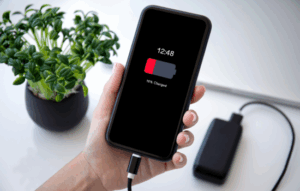Advertisements
Family safety shouldn't depend on last-minute calls or anxiety-inducing assumptions; with the right app, you can see the location of each loved one on a private map, receive automatic alerts when they enter or leave key areas, and react before an innocent stray becomes a concern.
Set up a family tracking solution today, define your virtual fences, and see how smart notifications replace text chains: in less than five minutes you'll have silent arrival confirmations, instant SOS alerts, and a route history that reveals real-time traffic and potential traffic jams—all without draining your device's battery.
Advertisements
The three best apps to track family location safely
Below you'll find a detailed comparison of Life360, GeoZilla, and Google Family Link. Each approaches geolocation from a different angle: comprehensive monitoring with advanced history, a balance of wellness and privacy, and native Google parental controls. Examine their strengths and limitations, and choose the one that best fits your family dynamic.
| App | Platforms | Pricing model | Key Features | Ideal for |
|---|---|---|---|---|
| Life360 | Android / iOS | Freemium, Gold and Platinum plans | 30-day driving history, driving alerts, accident detection, roadside assistance | Families who drive frequently and need 24/7 support |
| GeoZilla | Android / iOS | Free trial + monthly or annual subscription | Precise geofences, family chats, low battery reminder, route recording | Households looking for arrival notifications and a balance between privacy and tracking |
| Google Family Link | Android / iOS (control) + Android (kids) | Free | Basic geolocation, app usage reports, screen time limits | Parents who prefer native tools for children under 13–16 years old |
Advertisements
See also
- Fortifying tea: boost your little friend naturally
- Optimize your battery
- Your Voice and Your Stage: Karaoke Now!
- Monitor conversations: take care of those you love most
- Boost your confidence with habits that activate your little friend
1. Life360: Total monitoring and roadside assistance
Compatibility and price
Available on Android and iOS, Life360 offers a free plan with real-time tracking and two geofences. The Gold and Platinum plans add driving monitoring, a 30-day history, automatic crash detection, and insurance-style roadside assistance.
Pros
- Extensive history: Review routes and speeds over the past month, ideal for young drivers.
- Driving alerts: Notifies you of sudden braking, heavy acceleration, and mobile phone use while driving.
- SOS button: When pressed, it notifies family and emergency services with the exact location.
Cons
- Moderate battery consumption in high-precision mode, although this is mitigated with adaptive optimization.
- Some users find the level of detail about driving patterns intrusive.
- High monthly cost on premium plans if you only need basic features.
When to choose Life360
If your family routine includes car trips and you value automatic accident detection with roadside assistance, Life360 is the best option. A single, quickly resolved incident usually justifies the subscription.
2. GeoZilla: Balancing Privacy and Well-being
Compatibility and price
GeoZilla offers a free three-day trial, followed by a monthly or annual subscription. It works on Android and iOS.
Pros
- Highly precise geofences with adjustable radii from 50 meters; ideal for dense urban areas.
- Low battery alerts: The app notifies you when a member's device is about to shut down.
- Internal chat: centralizes communication without having to alternate with external messaging.
Cons
- Full history is limited to seven days on the standard plan; 30 days requires an additional fee.
- No advanced ride control; no crash detection or 24/7 assistance.
- Advertising about premium features during the trial can be insistent.
When to choose GeoZilla
If your priority is safe arrival at common locations (school, work, extracurricular activities) and you're looking for a clean interface with flexible privacy options, GeoZilla offers a balance between tracking and autonomy.
3. Google Family Link: Free child supervision
Compatibility and price
Free, available for parents on Android and iOS; the child device requires Android 7.0 or higher. Tracking works in the background using Google Play Services.
Pros
- Subscription-free, ad-free geolocation, along with screen time controls and app management.
- Native integration with Google accounts: centralized maps, notifications, and permissions.
- Weekly Usage Report: Reveals how much time each child spends on social media, gaming, or education.
Cons
- Location history limited to the day; no detailed routes or custom alert generation.
- Restricted functionality if the child has an iPhone; tracking becomes one-way.
- No geofences or built-in SOS alerts.
When to choose Google Family Link
If your children are using Android and still in school, Family Link covers basic geolocation and adds robust parental controls at no extra cost.
You can download the apps from their stores
How to get the most out of your choice
- Define key areas from day one
Set up “Home,” “School,” “Work,” and “Workout.” Fewer zones reduce irrelevant notifications. - Adjust the radius of geofences
In dense urban areas, a 100-meter diameter prevents false alarms; in rural areas, you can extend this to 250 meters for greater tolerance. - Activate low battery alerts
Both Life360 and GeoZilla notify you when your phone reaches 15 %. This way, you avoid the hassle of phones being turned off and ensure continuous location tracking. - Review history weekly
A quick look at the routes reveals common traffic jams and possible safer route cuts, optimizing future journeys. - Combines with good communication
Tracing doesn't replace family agreements. Discuss privacy, scheduling, and emergency protocols so the tool strengthens trust, not erodes it.
Privacy and security precautions
- Enable two-factor authentication on the app's primary account.
- Download only from Google Play or the App Store and avoid modified versions.
- Review visibility settings: Each member should be able to pause location if needed.
- If you lose your device, access the Life360 or GeoZilla web dashboard to lock it and wipe the data.
- Update the app and operating system at least once a month to fix vulnerabilities.
In the Part 3 You'll find a seven-day plan with specific goals: initial setup, setting up geofences, SOS alert testing, battery usage audits, and best practices for family communication. By the end of the week, you'll have a digital safety net that respects each person's autonomy and reduces anxiety to zero.






